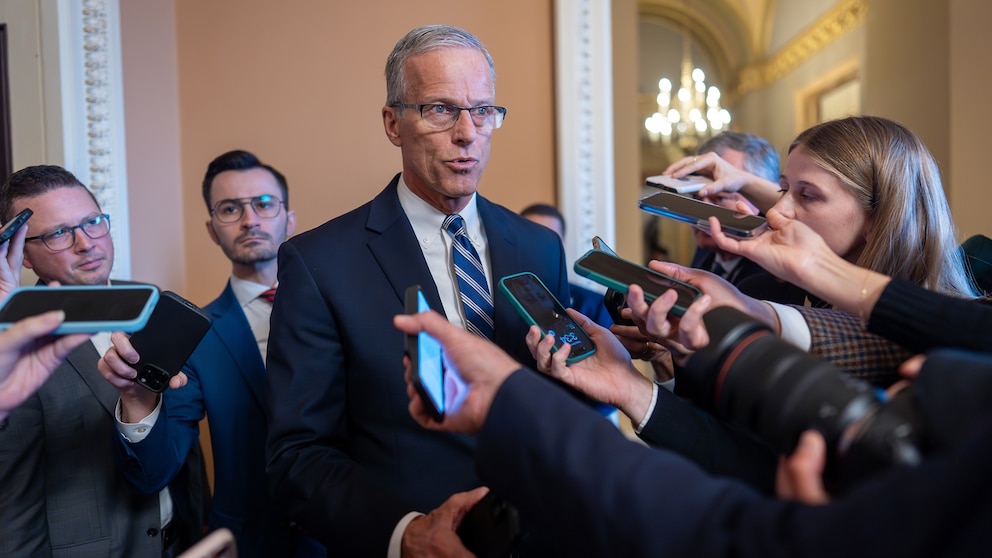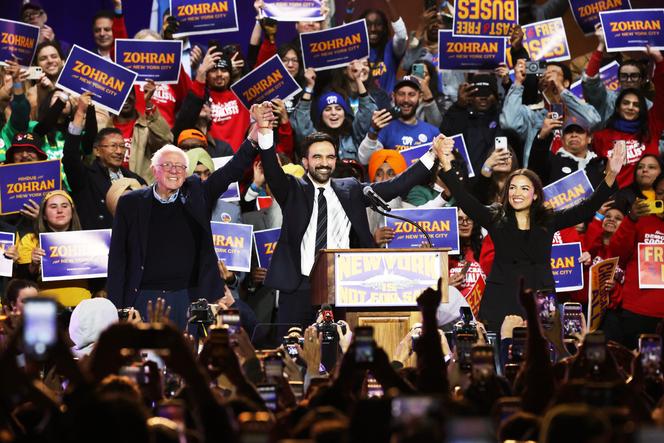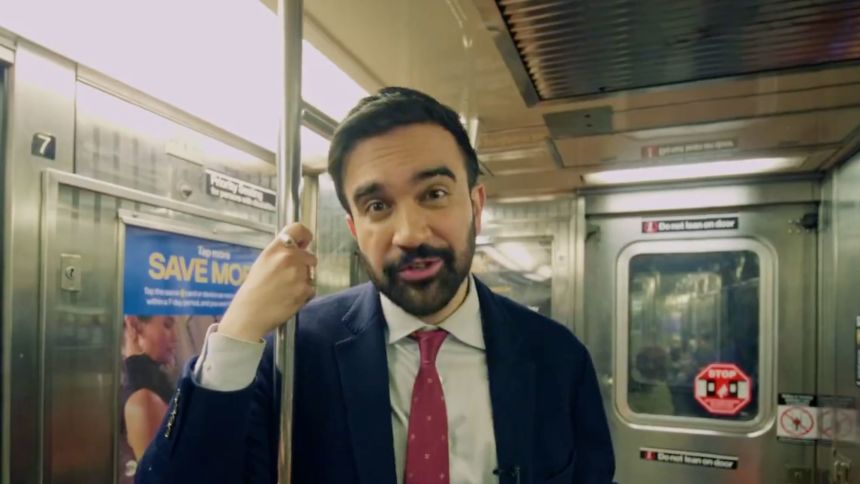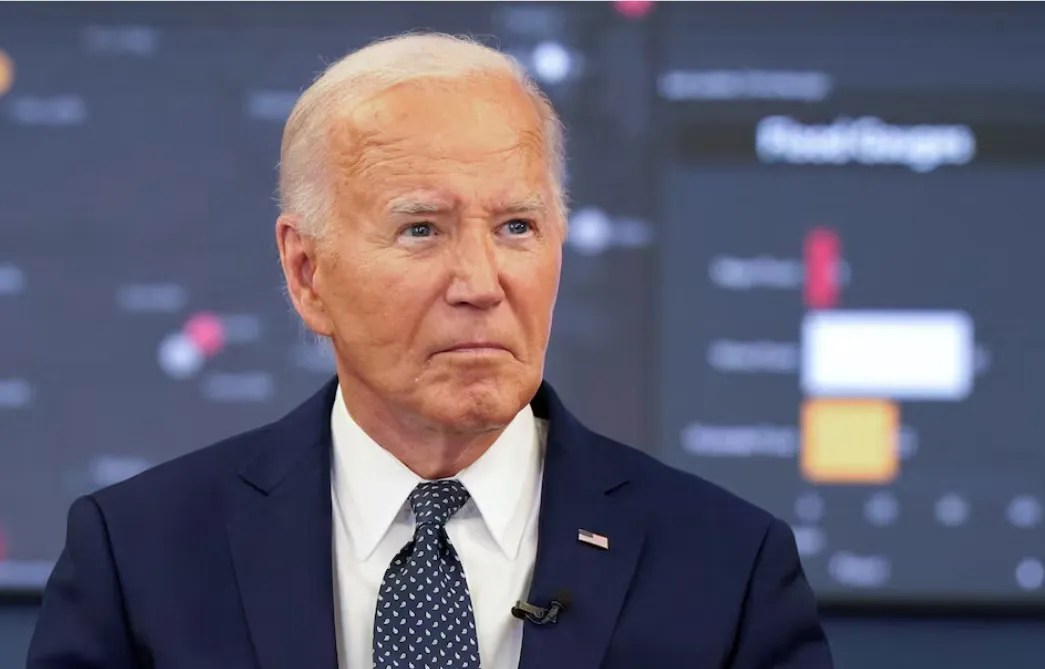
The offer, crafted by Sen. Gary Peters, D-Mich., and championed by Minority Leader Chuck Schumer, D-N.Y., would also extend expiring health care subsidies for one year.
WASHINGTON — Senate Democrats made an offer Friday to reopen the government, proposing a one-year extension of expiring Affordable Care Act subsidies alongside a package of funding measures in order to secure their votes.
The offer, rolled out on the floor by Senate Minority Leader Chuck Schumer, D-N.Y., includes a “clean” continuing resolution, which would reopen the government at current spending levels, and a package of three bipartisan appropriations bills to fund some departments for the full fiscal year.
“After so many failed votes, it’s clear we need to try something different,” Schumer said, calling it “a very simple compromise.”
The short-term health care funding extension would prevent a massive increase in insurance costs for millions of Americans on Obamacare next year. In addition, Democrats proposed creating a bipartisan committee to negotiate a longer-term solution.
“This is a reasonable offer that reopens the government, deals with health care affordability and begins a process of negotiating reforms to the ACA tax credits for the future,” Schumer added. “Now, the ball is in the Republicans’ court. We need Republicans to just say yes.”
Senate Majority Leader John Thune, R-S.D., called the Democratic offer a “nonstarter.”
“The Obamacare extension is the negotiation. That’s what we’re going to negotiate once the government opens up. … We need to vote to open the government — and there is a proposal out there to do that — and then we can have this whole conversation about health care,” he said.
The proposal was the idea of Sen. Gary Peters, D-Mich., according to two sources with knowledge of the matter. He shopped it around to Democratic senators before it was rolled out and spoke immediately after Schumer on the floor.
Peters has been part of rank-and-file discussions with Republicans to find a way to reopen the government.
“I’m willing to compromise,” he said. “But our Republican colleagues have to be willing to compromise, too.”

The offer represents a concession from the Democrats’ earlier proposal for a permanent extension of ACA funds and a repeal of President Donald Trump’s Medicaid cuts.
Still, GOP senators immediately panned the offer.
Sen. Mike Rounds, R-S.D., who has called for an ACA funding extension, said he opposes the Democratic proposal because it doesn’t contain any restrictions on the funds.
“No. Not on its current form,” Rounds said when asked if he could get to yes on the offer.
Sen. Lindsey Graham, R-S.C., slammed the Democratic proposal as “political terrorism.”
“Terrible. Horrible. I’m not going to keep giving taxpayer dollars to the five largest health care insurance companies under Obamacare to get the government open,” he said.
Sen. John Kennedy, R-La., called Schumer’s proposal “stupid.”
Even if the Senate passes the measure, it would have to go back to the House and gain approval before it can head to Trump’s desk.
Speaker Mike Johnson, R-La., said this week he cannot make any promises that the House will be a vote to extend the health care funds. House Minority Leader Hakeem Jeffries, D-N.Y., has previously panned a one-year ACA funding extension as a “nonstarter,” insisting on a longer-term solution instead.

Democrats’ 2025 election wins go beyond big races to places like Georgia, Pennsylvania
Democratic National Committee Chairman Ken Martin previously predicted in an interview with NPR that the party’s success in special elections in 2025 — where the party has overperformed prior margins by an average of about 14% — would continue into the midterm cycle.
“The important thing to remember is midterm elections are not a referendum on a party that’s not in power,” Martin said. “So our numbers really don’t matter here. Donald Trump is at an all-time low in terms of his favorability and his approval numbers… the Republican Party is as well.”
Tuesday’s results also show that the economy and affordability continue to be top of mind for voters, and voters have registered their displeasure with Trump and congressional Republicans’ agenda on that front.
How Democrats are emulating Mamdani’s style online

New York City Mayor-elect Zohran Mamdani’s campaign set a blueprint with content engineered for an online electorate.
Now, all over screens in 2025, candidates are gesturing and leaning toward the camera. They might walk and talk through a busy street or store. There’s a warm camera filter, and quick cuts, as they move rapid-fire through a list of talking points and policies.
Here’s a look at how some Democrats are producing content echoing the Mamdani style.
The Mamdani aesthetic
Mamdani’s videos are instantly recognizable by the saturated colors that help them stand out on social feeds crowded with content.
The videos are also characterized by quick cuts and big gestures — a tendency Mamdani joked about in one spot: “My team says I move my hands too much,” he says.

It’s an aesthetic that’s worked for other Democrats, including a pair of progressives in Michigan’s Democratic Senate primary.
Former Detroit public health official Abdul El-Sayed scored a hit with a video using burgers to illustrate billionaire excess, similar to a Mamdani video that used mango lassis to explain New York’s ranked choice voting system. And state Sen. Mallory McMorrow earned her own viral moment with a video highlighting grocery prices, calling to mind Mamdani’s bodega tours.
Andrew Mamo, a Democratic strategist advising McMorrow and Texas state Rep. James Talarico, another 2026 US Senate contender, underscored the importance of visually engaging content.
“Understand that you’re not just competing against the other Democrats in the primary. You’re not just competing against the Republicans,” Mamo explained. “You are competing against dog videos and sports highlights and Netflix on your other television and someone FaceTiming you and your group chat for attention on your phone and on your laptop and on your iPad.”
The substance: affordability
Mamdani’s campaign insists that its relentless focus on affordability was equally important to the success. “The style is downstream from the substance,” said Andrew Epstein, a top campaign aide.
“Unless you have a message and an agenda that is directly relevant to people’s lives that speaks to the economic conditions in this country, that credibly presents itself as an alternative to this incredibly broken status quo and the alienation that so many people feel from mainstream politics — it’s not going to work,” Epstein said.
Roxie Richner, El-Sayed’s communications director, echoed the Mamdani team’s emphasis on the issues.
“I think at the end of the day, what resonates with people is the substance,” Richner said, pointing to one of El-Sayed’s videos in which “he explained the privatization of the Bay City bridges in Bay City, Michigan, in a way that people understood and that maybe folks in other parts of the state weren’t aware of it.”
And while many politicians have taken to addressing voters’ concerns about affordability, strategists pointed to the importance of getting specific, exemplified by Mamdani’s focus on everyday pressure points like rents and bus fares.
“It’s not the affordability crisis in this country — it’s, ‘I need new deodorant and it’s $13.99, when did deodorant get to be $13.99?” Mamo said. “If you’re sitting in a bar, that is how you would say that. And if you’re on video, you should say it the same way, if you’re explaining it to your neighbor or a stranger at the bar, it’s the same way you should talk on camera.”
Emulation, not imitation
Soon after losing to Mamdani in the Democratic primary this summer, rival Andrew Cuomo began producing videos in which he was walking and talking in soft-filter video. Mamdani’s team noticed.
“I mean, I want to say imitation is the sincerest form of flattery, but in Andrew’s case, I think it’s a lot more pathetic than that, frankly,” Epstein said.
Other strategists underlined the importance of authenticity in campaign communications, with candidates across the country from different backgrounds facing a diverse array of issues.

“It has to be real to you,” Mamo said, pointing to the example of California Sen. Adam Schiff. “He’s a lawyer, a professor and an explainer. So their videos are lawyer-professor-explainer, Adam Schiff, lawyer-professor- explaining what’s going on in Congress.”
And Richner with El-Sayed’s campaign in Michigan said Tuesday’s election results demonstrated the party’s need for talented communicators.
“Whether it was bringing down utility prices in New Jersey, or it was making buses faster and free in New York, I think people are suffering in this moment, and they want to believe that things can be better, and they need leaders and messengers that can show them that,” she said.













:max_bytes(150000):strip_icc():focal(754x308:756x310):format(webp)/missing-dog-buttercup-012126-1-66f5ee10e3ed49b4aaa3599c6ff3f8a2.jpg?w=1200&resize=1200,0&ssl=1)























:max_bytes(150000):strip_icc():focal(999x0:1001x2)/catherine-ohara-013026-7-4b5b413a646d4f15a1fd15ac8b933811.jpg?w=1200&resize=1200,0&ssl=1)








